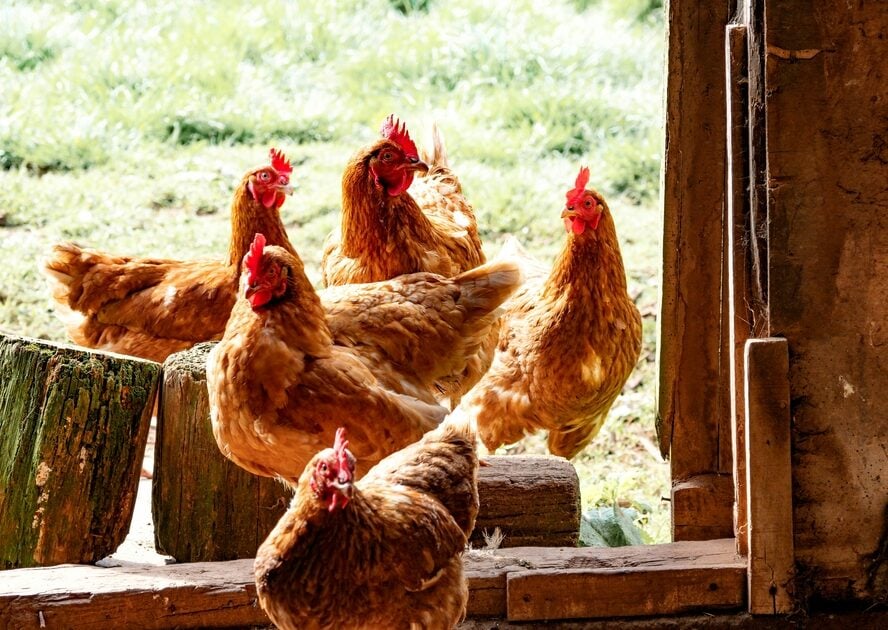
Breaking information: You could quickly be seeing naked cabinets the place the cage-free natural eggs as soon as sat within the grocery retailer. You would possibly assume that is linked to the latest outbreak of avian flu, however the scarcity isn’t what it appears.
Whereas hen flu continues to be a persistent drawback impacting the supply and value of eggs throughout the US1, this new dearth is definitely linked to a change within the laws on what constitutes a cage-free natural egg. No shock, many producers who as soon as met the rules now not do.
“The numerous industrial-scale cage-free services that want to preserve natural standing might want to make huge changes to their animal agriculture fashions,” explains Cameron Whitehead, COO of Pete & Gerry’s Natural Eggs. “The brand new requirements will drive cage-free farms to reinforce their hens’ outside residing area in a approach they haven’t but explored, largely attributable to value implications.”
What Are Cage-Free Eggs?
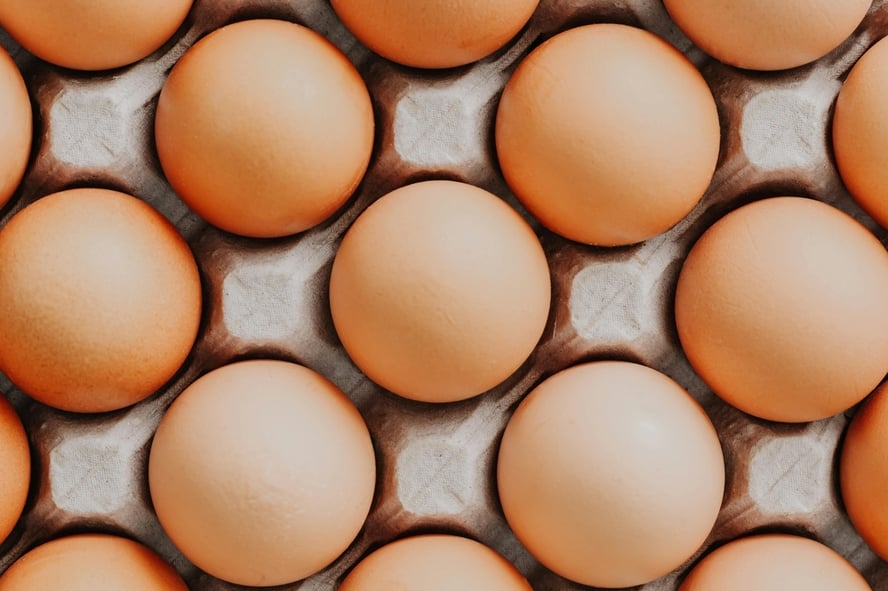
Earlier than we dive into the brand new laws, what does a “cage-free” declare in your carton of eggs presently imply? Nicely, sadly, a part of the necessity for brand spanking new laws stems from an absence of consistency within the definition. In principle, cage-free eggs are hatched from hens that don’t reside in cages and have the liberty to roam through the laying cycle. In follow, the foundations are so ambiguous that the end result is way from humane.
For instance, it’s not unusual for giant cage-free egg services to basically function as warehouse factories. Though there will not be any cages in sight, the overcrowded circumstances are nearly as dangerous. And with out clearer laws round each cage-free claims and natural standing, it’ll stay troublesome to separate the humane eggs from the inhumane ones.
The New Rules
The brand new Natural Livestock and Poultry Requirements had been introduced by the USDA final October and go into impact on January 1, 2025, with plans to roll out extra laws by means of 20292. These laws characterize “considerably improved humane circumstances for cage-free hens which are being raised organically,” says Whitehead.
The numerous industrial-scale cage-free services that want to preserve natural standing might want to make huge changes to their animal agriculture fashions.
Cameron Whitehead, COO of Pete & Gerry’s Natural Eggs
With the rollout of the brand new requirements, cage-free natural egg-laying hens will get pleasure from elevated perch and feed area. Maybe most significantly, the screened-in, enclosed porches hooked up to the buildings that home these birds will not qualify as enough outside area.
The Loophole within the Current Rules
The existence of those porches is linked to a loophole in what qualifies as entry to the outside, explains Mark Kastel, one of many founders of natural business watchdog OrganicEye. Many giant manufacturing unit farms within the U.S. — even USDA Licensed Natural ones — confine hundreds of birds to only one constructing “with a concrete ground, screened partitions, and steel ceiling,” says Kastel.
The “outside” porches hooked up to those buildings solely have the capability to carry a mere fraction of the birds. Kastel explains that the flooring of the buildings are so packed that it makes it extremely troublesome for birds to squeeze their well past one another to go outdoor. “The one birds that get out can be proper subsequent to the door,” he says.
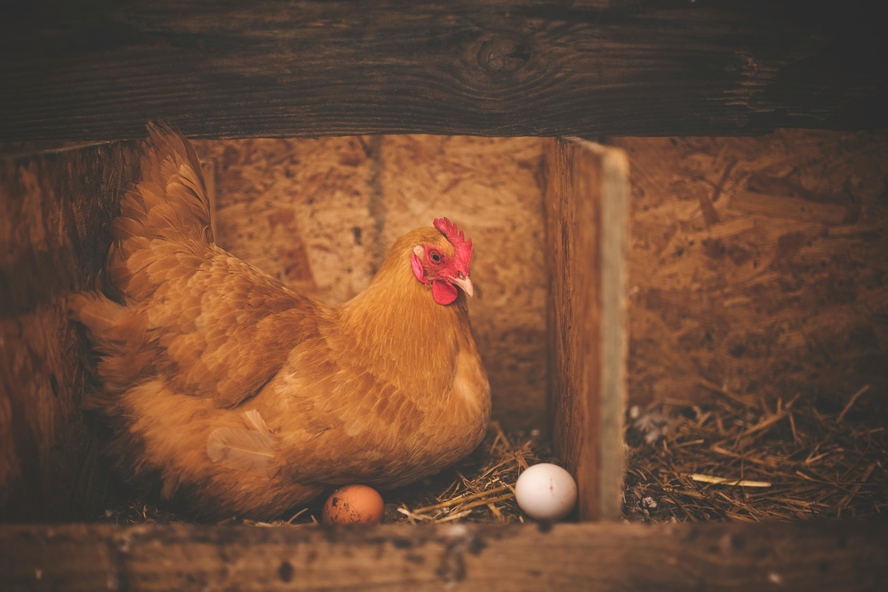
To make issues worse, these farms usually use large followers to whisk away the ammonia created by the tons of manure in these areas. This creates “a hurricane wind” exterior the constructing, says Kastel, which additional dissuades birds from profiting from their “outside” area. “I might recommend that 97% of them are being illegally confined with out entry to the outside.”
That mentioned, Kastel doesn’t see the brand new requirements as a real step ahead, both. “The prevailing guidelines had been sufficient,” he says, alleging that the USDA deemed them “too ambiguous” for enforcement. “However the natural requirements as they existed weren’t being enforced.”
However, the brand new benchmarks imply large livestock factories can’t proceed to function as they as soon as did. Kastel expects bigger operations to satisfy the brand new laws by contracting with mid-sized Amish and Mennonite farms, which preserve their hens in buildings with a 20,000 to 40,000 hen capability. Sadly, he nonetheless expects that “a really small share of these birds will truly be exterior.”
The Advantages of Actually Humane Eggs
Other than the apparent, there are additionally egocentric causes to push for extra stringent laws. Actually humane, natural, pastured eggs have confirmed to be extra flavorful and extra nutritious than typical, with a 2010 examine displaying that eggs laid by pastured hens had been richer in omega-3 fatty acids and nutritional vitamins A and E3. The researchers at Penn State’s Faculty of Agricultural Sciences discovered that these further vitamins stem largely from the food regimen of pure bugs and foraged grasses that pastured hens get pleasure from.
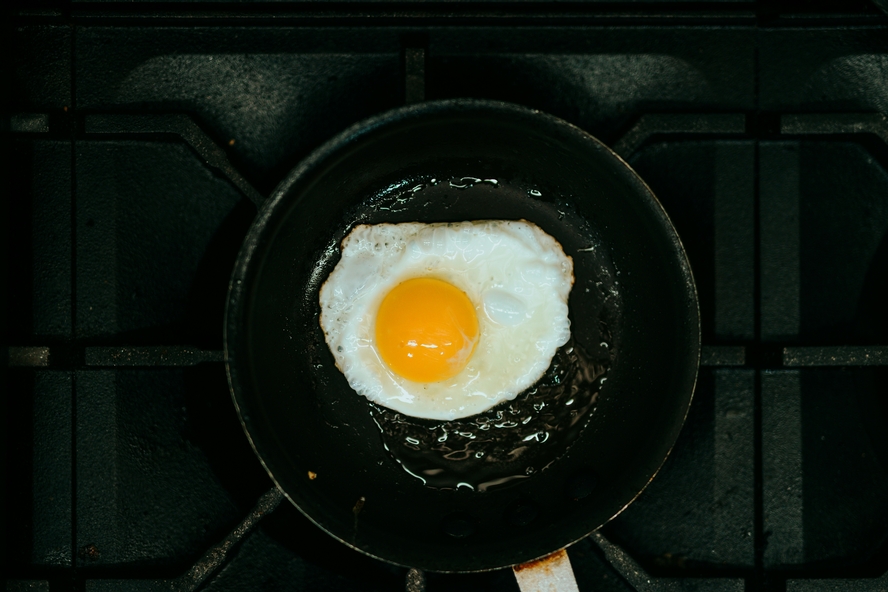
Whereas the brand new laws are a push in the correct route by way of the humane remedy of egg-laying hens, there isn’t a proof that they may make a significant sufficient distinction to contribute to improved taste or vitamin. Fortunately, there have lengthy been small farming operations dedicated to producing humane eggs. For instance, Pete & Gerry’s pasture-raised eggs come from hens that roam outdoor with at the least 108 sq. ft of area per hen.
Learn how to Determine Humane Eggs
Actually humane, natural, pastured eggs have confirmed to be extra flavorful and extra nutritious than typical, with a 2010 examine displaying that eggs laid by pastured hens had been richer in omega-3 fatty acids and nutritional vitamins A and E3.
To search out extra humane eggs, customers have to look a bit nearer at their egg cartons. And regardless of the crackdown on laws, the USDA Licensed Natural label nonetheless isn’t fairly sufficient. Right here’s what you must look out for.
Manufacturers to Purchase From
Should you’re in a rush and simply need some extensively accessible manufacturers you’ll be able to belief, Kastel recommends Important Farms and Good-looking Brook. Each of those farms method a pastured mindset that Kastel phrases “enhanced outside entry.” Whereas their hens all reside in fastened homes and ought to be distinguished from actually pasture-raised birds, the buildings have extra doorways than most, and the farmers make a real effort to encourage their birds to exit.

Seals and Labels to Look For
For actually humane eggs, Whitehead recommends searching for the Licensed Humane seal, paired with labels like ‘pasture-raised’ or ‘free-range.’ Licensed humane eggs imply that the egg producers have met rigorous requirements set by the Humane Farm Animal Care group. In different phrases, you’ll be able to belief that the hens that laid the eggs had ample area to put eggs with minimal misery.
Free-Vary vs. Cage-Free
There’s a standard debate about two labels you would possibly see in your eggs: free-range vs. cage-free. In terms of free-range eggs vs. cage-free, the phrases shouldn’t be used interchangeably. Free-range eggs characterize a step up. “These phrases imply that the eggs have been produced by hens that reside a pure way of life and have the liberty to roam outdoor on pastureland,” says Whitehead.
Pasture-Raised vs. Free-Vary
Armed together with your new information in regards to the loopholes in cage-free egg laws, you’ll be able to in all probability guess that each pasture-raised and free-range eggs are extra humane than cage-free eggs. However what’s the distinction between the 2?
The principle distinction between these two labels is the minimal quantity of outside area offered to the hens. Free-range eggs require every hen to obtain a minimal of two sq. ft of pasture. This already represents an enormous enchancment in comparison with cage-free eggs — however pasture-raised eggs take issues even additional. To qualify as a pasture-raised egg, the hens should every have a minimal of 108 sq. ft to roam.
Learn how to Discover the Very Finest Eggs
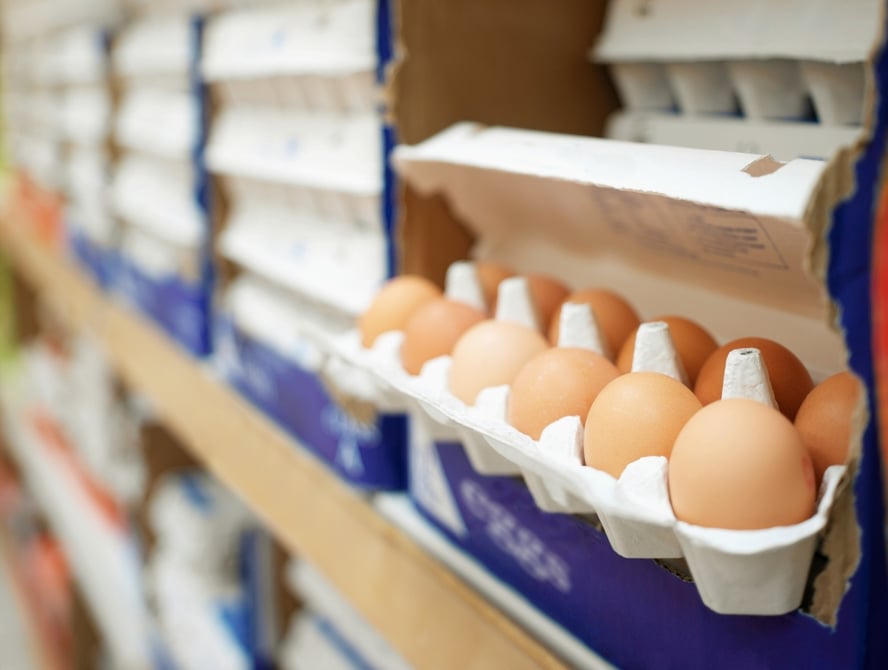
Should you’re actually dedicated to animal welfare and wish to do your personal analysis, there are a couple of further issues you’ll be able to search for past the standard labels. For the absolute best eggs, Kastel recommends searching for regionally marketed, pastured eggs. “That’s the place you’re gonna discover actually natural eggs.”
For instance, he mentions Joel Salatin, proprietor of the pioneering Polyface Farm in Swoope, Virginia. “He has what he calls an eggmobile, a giant trailer that he strikes each single day, out in an actual pasture,” explains Kastel4. “The birds are by no means in their very own excrement. They usually’re at all times with contemporary grass or weeds or bugs, or no matter they’re consuming.”
Versus most natural farms he visits, the place he sees about two to 3 p.c of birds outdoor at any given time, Kastel was completely satisfied to see a marked distinction at Polyface Farm. “At Joel’s farm in Virginia, there weren’t three p.c of the birds out. There have been two or three p.c of the birds inside.”
“For the easiest eggs, search for regionally marketed, pastured eggs. That’s the place you’re gonna discover actually natural eggs.”
Mark Kastel, Co-Founding father of OrganicEye
Salatin is just one of a number of small producers elevating egg-laying hens in such a humane, eco-conscious approach. To discover a equally humane supply of eggs close to you, Kastel recommends monitoring down your native egg producers: on the farmer’s market, member-owned meals co-op, or independently-owned pure meals retailer. Sources like Eat Wild or The Actual Natural Undertaking make this a bit simpler, permitting you to search out one of the best retailers close to you.
“If you would like one of the best meals, past the minimal in natural, it takes slightly extra effort to do your homework,” says Kastel. “However I say it’s price it.”
Sources:
- https://www.msn.com/en-us/food-and-drink/recipes/bird-flu-impacting-local-egg-prices-stores-strive-to-keep-costs-low/ar-AA1vicBk
- https://ota.com/advocacy/critical-issues/organic-animal-welfare-standards
- https://www.psu.edu/information/agricultural-sciences/story/research-shows-eggs-pastured-chickens-may-be-more-nutritious
- https://www.youtube.com/watch?v=V_nZNGSZAII

